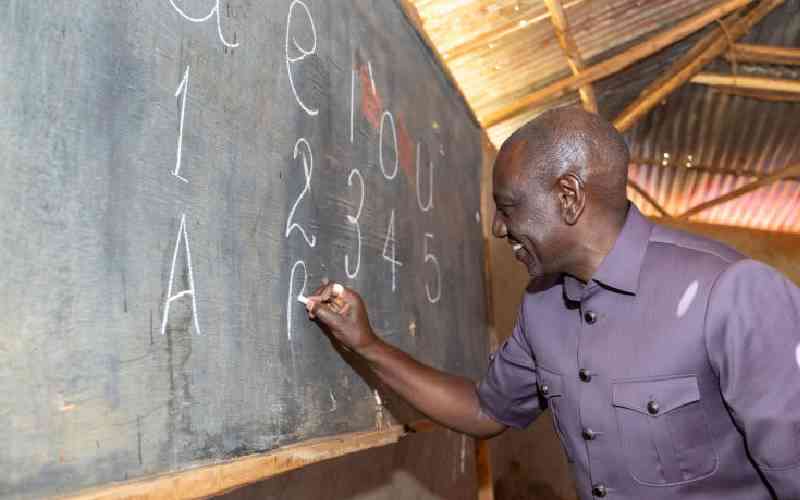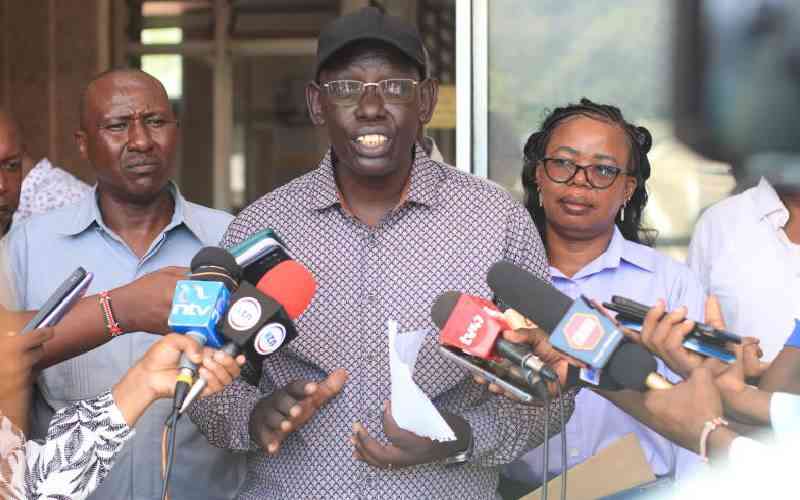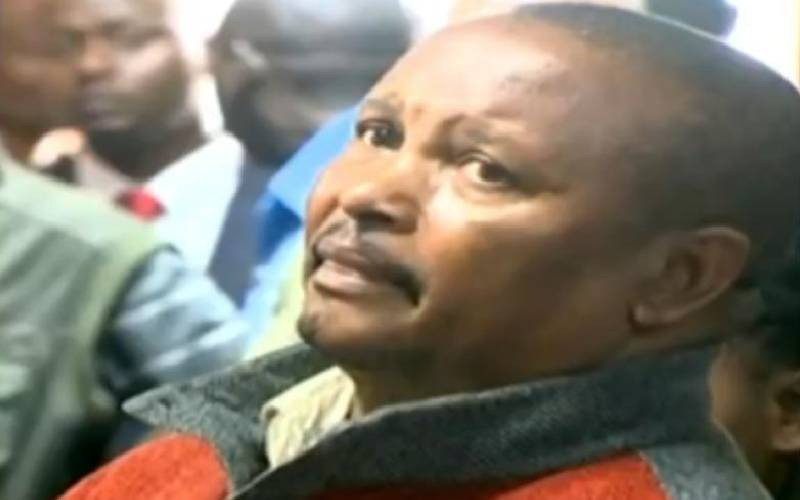
I spent last week in Zambia where I met one of the world's most renowned economists and a former World Bank team member.
While she did not allow me to quote her on record, our engagement left my mind in a spin as I sought to understand why our country's economic situation seems to deepen despite various efforts and promises by our leaders to ease the high cost of living.
She confirmed what is now obvious to many, that Kenya stands at a crucial economic crossroads, grappling with significant challenges that have far-reaching impacts on the daily lives of its citizens.
She gave me an example of two recent developments - the loans from the Trade and Development Bank (TDB) and the International Monetary Fund (IMF), and the impending Eurobond repayment - that cast a spotlight on the nation's economic vulnerabilities and the urgent need for strategic policy interventions. Primarily, she made me appreciate that the $210 million loan from the TDB and the additional $683.2 million from the IMF are not mere fiscal transactions, they are huge alarm bells signalling deeper economic undercurrents.
These loans, sought to support foreign exchange reserves and manage the looming $2 billion Eurobond repayment due in June, underscore a fragile economic landscape burdened by high levels of debt.
I realised that for the common mwananchi, these macroeconomic manoeuvres translate to the immediate realities of the high cost of living, fluctuating currency values, and the uncertainty of future financial stability.
Inflation rates, a direct barometer of living costs, have been on an upward trend, affecting the price of basic commodities. She gave an example of the country's inflation rate which currently hovers around 8 per cent, markedly higher than the Central Bank's target range. This uptick impacts everything from cost of maize flour to fuel prices, stretching household budgets to their limits.
The greatly endowed economist passionately explained that government borrowing often leads to increased public debt, which necessitates higher taxes (this rang a bell) and reduced public spending to manage. This, in turn, can lead to reduced subsidies on essential goods and services, thereby increasing their costs.
Additionally, servicing foreign debt can strain our foreign currency reserves, impacting the Shilling's strength and influencing import costs. At this point I was wondering if she had turned to be a Kenyan economic prophet.
As we spoke, I absorbed that the call to action is dual, firstly, there is an urgent need for transparency and accountability in how loans are managed and utilised. The government must ensure that borrowed funds are invested in productive sectors that can stimulate economic growth and generate revenue, rather than being lost to inefficiencies, corruption or confusion.
Secondly, there is a critical need to diversify the economy to reduce over-reliance on external debt. Substantial investments in agriculture, technology and manufacturing can create jobs, boost exports, and provide a more stable revenue base.
For example, harnessing the potential of the agricultural sector, which employs about 75 per cent of the Kenyan workforce, through value addition and improved market access can significantly enhance income levels and food security.
Further, a thriving SME sector can be a powerful engine for job creation and poverty reduction. I have always celebrated the fact that these enterprises contribute approximately 33 per cent to Kenya's GDP. We must support them through favourable credit facilities and business environments to ignite grassroots growth.
Ultimately, we must nurture a culture of financial literacy and prudent personal financial management. Understanding budgeting, savings and the impacts of inflation can empower individuals to make informed decisions.
Stay informed. Subscribe to our newsletter
The path ahead demands a strategic blend of economic farsightedness, investment in growth sectors, and an unwavering commitment to the welfare of Kenyans. Time for decisive action is now and our collective future depends on it. Think Green, act green!
www.kaluagreen.com
 The Standard Group Plc is a
multi-media organization with investments in media platforms spanning newspaper
print operations, television, radio broadcasting, digital and online services. The
Standard Group is recognized as a leading multi-media house in Kenya with a key
influence in matters of national and international interest.
The Standard Group Plc is a
multi-media organization with investments in media platforms spanning newspaper
print operations, television, radio broadcasting, digital and online services. The
Standard Group is recognized as a leading multi-media house in Kenya with a key
influence in matters of national and international interest.
 The Standard Group Plc is a
multi-media organization with investments in media platforms spanning newspaper
print operations, television, radio broadcasting, digital and online services. The
Standard Group is recognized as a leading multi-media house in Kenya with a key
influence in matters of national and international interest.
The Standard Group Plc is a
multi-media organization with investments in media platforms spanning newspaper
print operations, television, radio broadcasting, digital and online services. The
Standard Group is recognized as a leading multi-media house in Kenya with a key
influence in matters of national and international interest.






